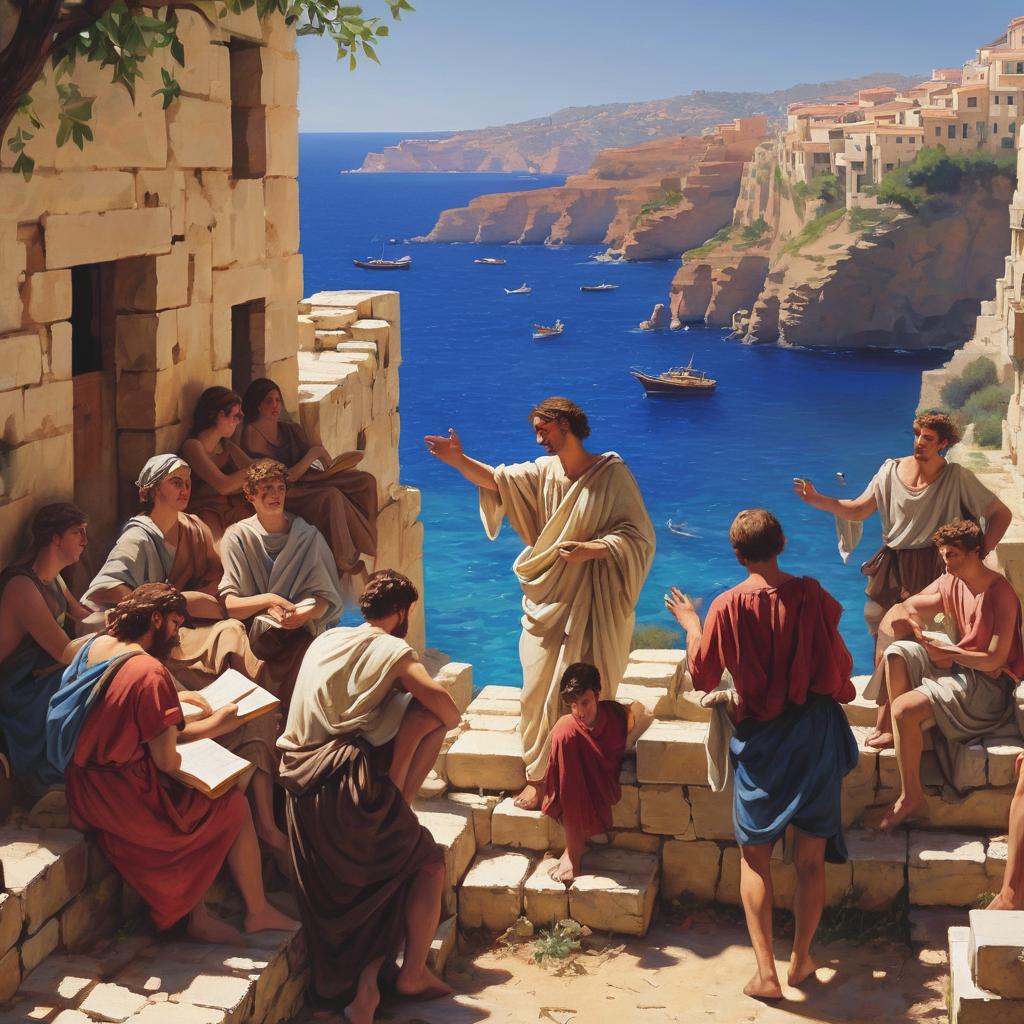Paideia: The Foundation of Holistic Education

Paideia, an ancient Greek concept of education, transcends mere knowledge acquisition. It represents the holistic cultivation of the mind, body, and soul, aiming to create well-rounded individuals who contribute meaningfully to society. Rooted in the ethos of Greek civilization, Paideia emphasizes intellectual growth, moral development, and physical well-being, offering a timeless blueprint for comprehensive education.
The Essence of Paideia
In ancient Greece, Paideia was more than formal schooling; it was a cultural ideal. The term derives from “pais,” meaning child, and encompasses the entire process of upbringing and education. Paideia aimed to shape individuals into virtuous and capable citizens, fostering intellectual excellence, ethical integrity, and physical fitness. It integrated various disciplines, including philosophy, arts, sports, and rhetoric, to cultivate a balanced and enlightened individual.
Practical Examples of Paideia in Modern Life
Intellectual Development
Paideia encourages a lifelong pursuit of knowledge and critical thinking. This involves engaging with diverse subjects, cultivating curiosity, and developing analytical skills. Practically, this could mean reading widely, participating in discussions, and pursuing higher education or online courses. For instance, someone might enroll in a philosophy class to enhance their reasoning abilities and broaden their perspectives on life.
Moral and Ethical Growth
Ethical education is a cornerstone of Paideia. It involves instilling virtues such as honesty, empathy, and justice. In modern life, this can be pursued through character education programs, community service, and ethical decision-making in personal and professional contexts. For example, teaching children the importance of honesty and kindness, or adults engaging in volunteer work, reflects the principles of Paideia.
Physical Fitness and Well-being
Ancient Greeks believed in the harmony of mind and body. Paideia promotes physical fitness as an essential part of education. This means integrating regular physical activity into daily routines, whether through sports, exercise, or outdoor activities. For instance, schools and workplaces can encourage physical wellness by providing access to sports facilities and promoting active lifestyles.
Cultural and Artistic Appreciation
Paideia includes the appreciation of arts and culture as a means of enriching the soul and fostering creativity. Engaging with music, literature, visual arts, and theatre can enhance emotional intelligence and aesthetic sensibility. Practically, this could involve attending cultural events, participating in artistic hobbies, or simply appreciating the arts in everyday life.
Rhetoric and Communication Skills
Effective communication is a vital component of Paideia. It involves mastering the art of rhetoric, which includes persuasive speaking, clear writing, and active listening. Modern applications could include public speaking courses, writing workshops, and debate clubs. For example, joining a Toastmasters group to improve public speaking skills or participating in writing competitions to refine expressive abilities.
Embracing Paideia Today
To incorporate Paideia into your daily life, consider these practical steps:
- Lifelong Learning: Embrace a continuous quest for knowledge. Read books, take courses, and stay curious about the world around you.
- Ethical Living: Practice ethical behavior and encourage moral development in others. Engage in acts of kindness, fairness, and integrity.
- Physical Activity: Maintain a regular exercise routine to keep your body fit and healthy. Balance mental and physical activities.
- Cultural Engagement: Participate in cultural and artistic activities. Attend concerts, visit museums, or create your own art.
- Effective Communication: Develop your communication skills. Join clubs or groups that focus on public speaking, writing, or debate.
By embracing the principles of Paideia, we can aspire to develop holistically, nurturing our intellectual, moral, and physical capacities. This ancient Greek ideal offers a comprehensive framework for personal and societal growth, encouraging us to become well-rounded, virtuous individuals capable of contributing meaningfully to our communities.


